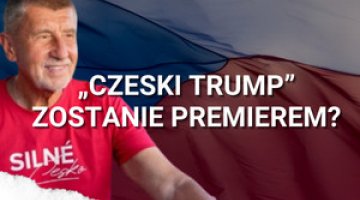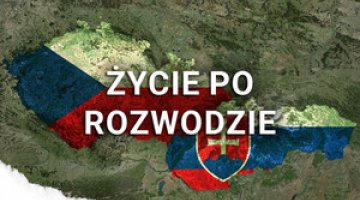Progress in the Czech nuclear programme: the EC’s approval and bids for new units
On 30 April, the European Commission (EC) approved a state aid mechanism enabling the funding of the construction and operation of the fifth unit of the Dukovany Nuclear Power Plant (with a capacity of up to 1200 MW). As part of this mechanism the power plant’s owner, the ČEZ company (70% of whose stake is state-controlled), is to receive a loan from the state of up to around €7.74 bn for the construction of the new unit. This sum is expected to be repaid within 30 years of the plant obtaining an operating licence (its trial run is planned for 2036 and its full connection to the grid two years later). Interest on this loan will be calculated once the unit starts operating; it will be 1 percentage point higher than the interest on public debt, although it will not be lower than 2%.
The mechanism approved also envisages state subsidies for the investor if market electricity prices fall below a threshold which guarantees the investment’s profitability (the so-called contract for difference, CfD). Unlike in the case of standard CfD contracts, the subsidy mechanism was devised in such a way so as to motivate electricity producers to reduce production whenever an electricity surplus is expected at specific times of day, week or year. The CfD mechanism will work in both directions, which means that if electricity prices exceed a specific threshold the investor will be obliged to return its windfall profit to the state. The subsidies will be paid out for 40 years, after which market solutions will be implemented. A state-controlled commercial company, which will be incorporated around 2030, will be responsible for purchasing electricity.
Alongside this, ČEZ confirmed that two companies, EDF from France and KHNP from South Korea, had submitted their modified binding bids to construct four units at both Czech nuclear power plants (see ‘The Czech nuclear tender: more units to be built, but without US participation’). According to the most recent schedule, the government is expected to make its final decision on the selection of the contractor by mid-July 2024.
Commentary
- The approval of the state aid mechanism for the first of the four planned nuclear power plant units has placed Prague in a favourable position as regards its efforts to apply for similar EC approvals for the other three units. It also represents the crowning achievement of almost two years of negotiations, during which the Czech Republic abandoned several demands, including the one regarding state subsidies for the electricity price throughout the unit’s planned operation (60 years) and ultimately agreed to a 40-year period; this is five years longer than the period recently agreed for a new nuclear power plant notified to the EU, that is Hinkley Point C in the UK. According to a Czech minister, during its talks with Prague the EC referred to the flexible mechanism for compensating for electricity price fluctuations as a model example which similar initiatives in other states could follow. It could thus be applied to nuclear energy investments being implemented in Poland, France, the Netherlands and Slovenia. The Ministry of Industry and Trade, which supervises the energy sector, has emphasised that the most likely scenario from the point of view of the work schedule involves the present government signing a contract for the operation of two new units at the Dukovany NPP (the construction of which could proceed simultaneously), while a contract regarding two new units at the Temelín NPP will be signed by the government formed following the 2025 parliamentary elections. The Czech Republic plans to increase its electricity production at nuclear power plants from the present level of around 33% to 50% by 2050.
- At the final stage of the tender, which is considered the biggest of its kind in the history of the Czech Republic (the potential contract value is estimated at €30–40 bn), the French bidder has proven to be more active. It is viewed as the favourite because its selection could boost the Czech Republic’s strategic partnership with France. The Czech media regularly runs articles (containing a note fully disclosing that EDF was involved in writing them) which emphasise the advantages of the French bid and the drawbacks of the competing bid. In March, French President Emmanuel Macron visited Prague to give “full support” to EDF’s bid. He repeatedly highlighted the assets of cooperation in this sphere during a press conference with Czech PM Petr Fiala, and on the preceding day an agreement was signed between ČEZ and the French Orano company regarding the supplies of enriched uranium for the needs of the Dukovany NPP. EDF has also pledged to actively involve Czech companies in the investment; the structure of this cooperation would be based on the model applied during the construction of the UK’s Hinkley Point C NPP, in which local companies accounted for 64% of the contract’s value. As part of this cooperation, Czech companies would carry out construction (the partners have agreed to establish a consortium made up of companies from both countries: the Czech Metrostav and the French Bouygues Travaux Publics), assembly & installation work, and would be responsible for the installation and operation of the electrical systems. EDF has presented the Czech companies with a vision for involving them in the chains of suppliers which will carry out numerous nuclear projects around Europe in the coming years (France alone plans to build 14 reactors by 2050). Škoda JS from Plzeň (a company from the ČEZ group) has already supplied some components for the construction of Hinkley Point C. However, the series of delays and mounting costs which arose during the implementation of EDF’s British project should be viewed as an ill omen. Similar problems have occurred in EDF’s projects carried out in Finland (Olkiluoto) and in France itself (Flamanville).
- The dispute with the American company Westinghouse may be the most important factor undermining the prospects for the selection of KHNP’s bid. Westinghouse has accused the South Korean company of using its technology outside its home country without its consent. In 2023 a US federal court rejected these accusations, but Westinghouse has appealed against this decision. The final ruling will likely only be passed by the time Prague has already selected its key partner for its nuclear energy development programme. Despite the dispute, both companies have cooperated for many years (Westinghouse is responsible for the maintenance and supplies of some components for KHNP’s power plants in South Korea). The Korean company’s executives have attempted to present their close cooperation with Westinghouse as an asset; they have argued that if KHNP wins the tender, the two companies would cooperate in a similar mode to their collaboration in South Korea. However, the KHNP has no experience in carrying out projects in the EU, which are more demanding in their organisational and regulatory aspects. The only initiative it has been involved in outside South Korea is the construction of four units of a power plant in the United Arab Emirates; generally, this investment has been progressing according to plan. The Korean company has offered the Czech principal a reactor which is less efficient than that offered by the French bidder (APR 1000 with a capacity of 1050 MW, versus EPR 1200). EDF has selected a reactor which meets the upper limit specified by the Czech government. On the other hand, including a less efficient reactor in the bid may also reduce the final price, and it could be favourable as the reactor will have to be cooled down using water from the relatively small Jihlava river. Another unquestioned advantage of KHNP’s bid involves its specific pledge that the turbine, which is one of the most important components, will be manufactured by the Plzeň-based Doosan Škoda Power company, which is owned by the South Korean Doosan Enerbility company. In mid-May the South Korean company will hold Doosan Partnership Days, an event which is intended to serve as a response to the Czech-French Nuclear Forum which took place in March.





